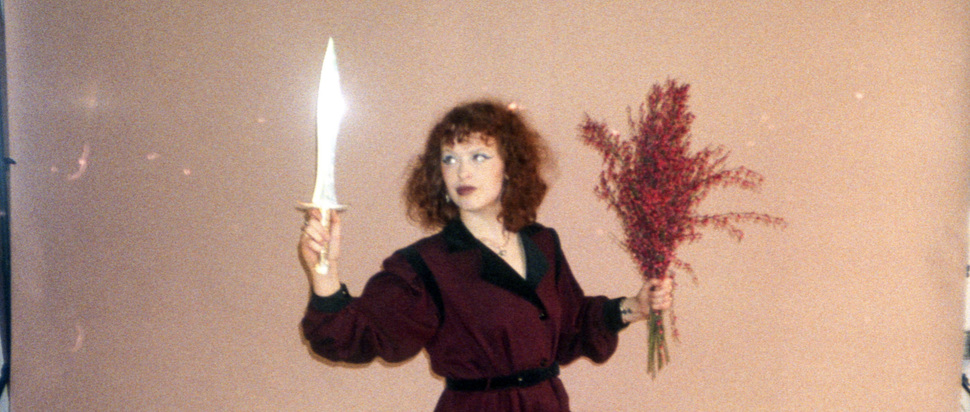Genevieve Jagger on her vampire novel Fragile Animals
In celebration of her debut novel Fragile Animals, we sit down to talk with Scottish author Genevieve Jagger about vampires, literary influences, neurodivergence and tarot readings
As I sit down with Genevieve Jagger to discuss her inspiring debut Fragile Animals, the phone reception (iffy on both ends, in spite of my end being a city centre) becomes a third voice in the conversation. It isn’t quite an obstruction, but it feels immersive in some way: Jagger’s Fragile Animals, after all, is a wild and windy account of a young woman, Noelle, who escapes to the isolation of the Isle of Bute and into the companionship of a vampire called Moses. Visceral, vivacious, and delightfully – though certainly not conventionally – vampiric, Fragile Animals is as atmospheric as you might expect a lustful supernatural novel to be, yet undergirded by a subversive approach that originally drew Jagger to the genre.
“The vampire is such an obvious trope,” Jagger says, laughing, “so I didn't really want to go into it just to say more – it’s all been said, so I had a lot of fun deliberately not probing the lore. A lot of the novel is about Catholicism and religion, which to me, it seems like it would be just as reasonable to believe in a vampire.” In Fragile Animals, Noelle’s acceptance of Moses’ claim of being inhuman is casual and matter-of-fact, a delightful juxtaposition with her own religious upbringing.
“Much of the novel,” Jagger adds, “hinges on the idea of the church being an unreliable narrator, like what rules and history were dictated to Noelle. There’s a lot of secrecy, omission and misdirection in the novel and maybe Noelle is trying to push through all of it to become honest. I think that is her genuine intent but it’s blocked by trauma, memory and religion as well.”
In spite of the confidence with which this novel asserts itself, Jagger had never written fiction until a trip to Bute sparked the early rumblings of Fragile Animals within her. “My mental health wasn’t great at the time,” she explains, “and that’s definitely where Noelle came from. We’d gone on this trip to get away for a bit and be distracted but there was just no distraction whatsoever, and I felt very confronted with myself and how I felt. At this point I’d never written fiction before, just plays and poetry and I thought I’d have a crack at a short story.
“And it grew,” she continues, “but it just felt like this story needed to come out of me. I was very much in touch with the physicality of my mental health, which is something I think Noelle thinks about a lot: how it feels to be tearful, how your organs feel in their place.”
While Noelle is by no means a fictional version of her creator, Jagger does highlight some of her protagonist’s behaviours that might resonate as neurodivergent, in representation of her own autism. “Noelle shows characteristics like masking or reflecting people back to them. She also accepts people for what they say they are, and can yield to others just because they act like they know more than her.”
It’s a subtle act of representation for neurodivergent folk, but one that is direly needed within a world that so often makes a character’s neurodivergence their primary traits at best, or objectifies them at worst. On her own autism, Jagger points out that autistic people are consistently infantilised and portrayed as uncreative, which are narratives that being literary can challenge.
“I had a wonderful time reading Naoise Dolan’s Exciting Times,” she explains. “It was delicious to me, as you can read that she’s autistic throughout the novel, through a texture of character maybe, even though it wasn’t the main theme.”
Elle Nash, who has also been published by 404 Ink, became a source of inspiration for Jagger after she picked up Animals Eat Each Other on the cult-fiction table at Waterstones. “I ended up taking her writing classes – they were mind-blowing,” she says. “Then she coincidentally moved from Arkansas to Glasgow, and soon enough I was babysitting her kid and we became great friends.”
As well as being an author, Jagger reads tarot cards “as a sort of side thing.” Upon asking her to ask herself a question, she immediately queries what kind of tarot spread Fragile Animals might be. “I feel it would be the tower, the devil, the moon and the hierophant,” she says. “Lots of shadowy collapsing cards. The moon is like immense emotion, the devil is obviously the devil but also the state of being limited by your own internal beliefs, and the tower is when everything is collapsing around you. The hierophant is institutions like church.”
As the Fragile Animals tarot spread suggests, Jagger’s debut novel is a rich and colourful work, marked by chaos and tragedy (often self-imposed). Drawing from both the gruesome vampires of the classics and the slick, sexy, silver vampires of the Twilight era, Jagger finds a wonderfully uneasy middle-ground in a novel that tears at flesh with kisses and tenderly tickles with the sharpest of teeth.
Fragile Animals is out with 404 Ink on 25 Apr
Genevieve Jagger will be at Paisley Book Festival on 28 Apr, in conversation with Camilla Grudova
